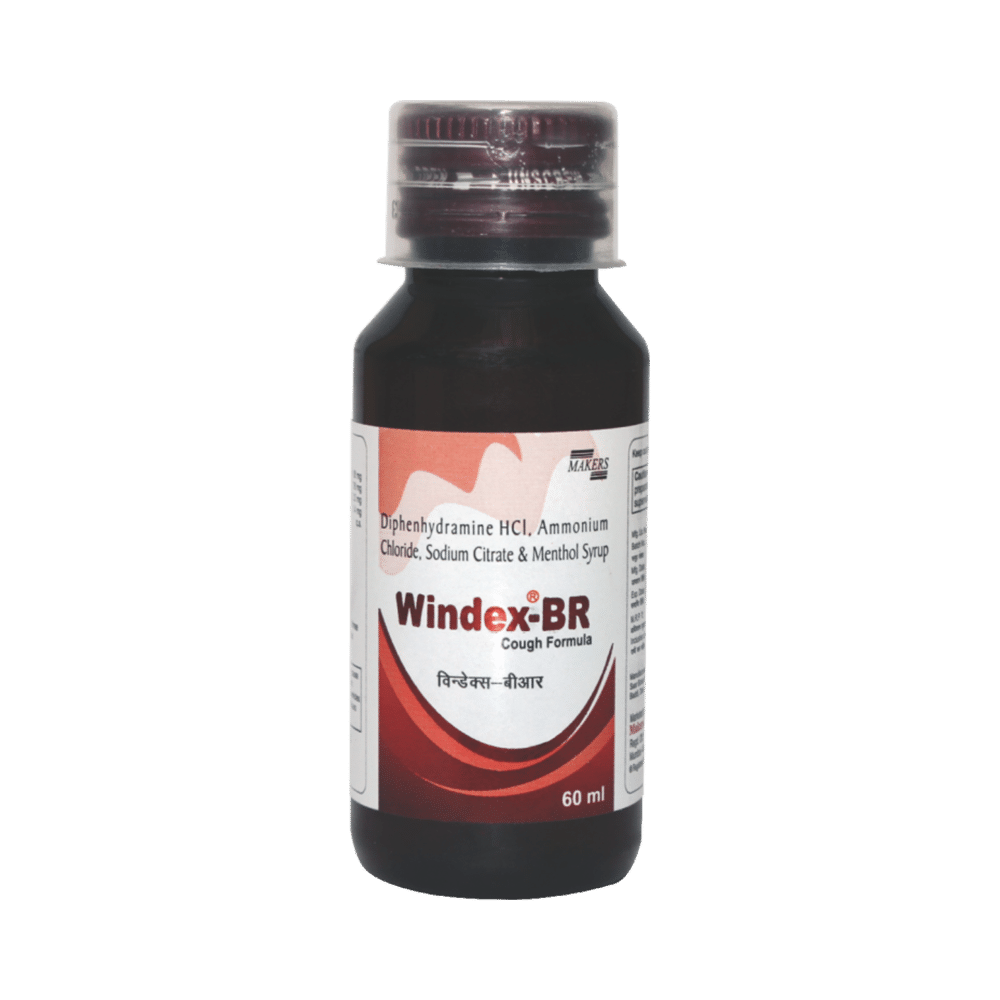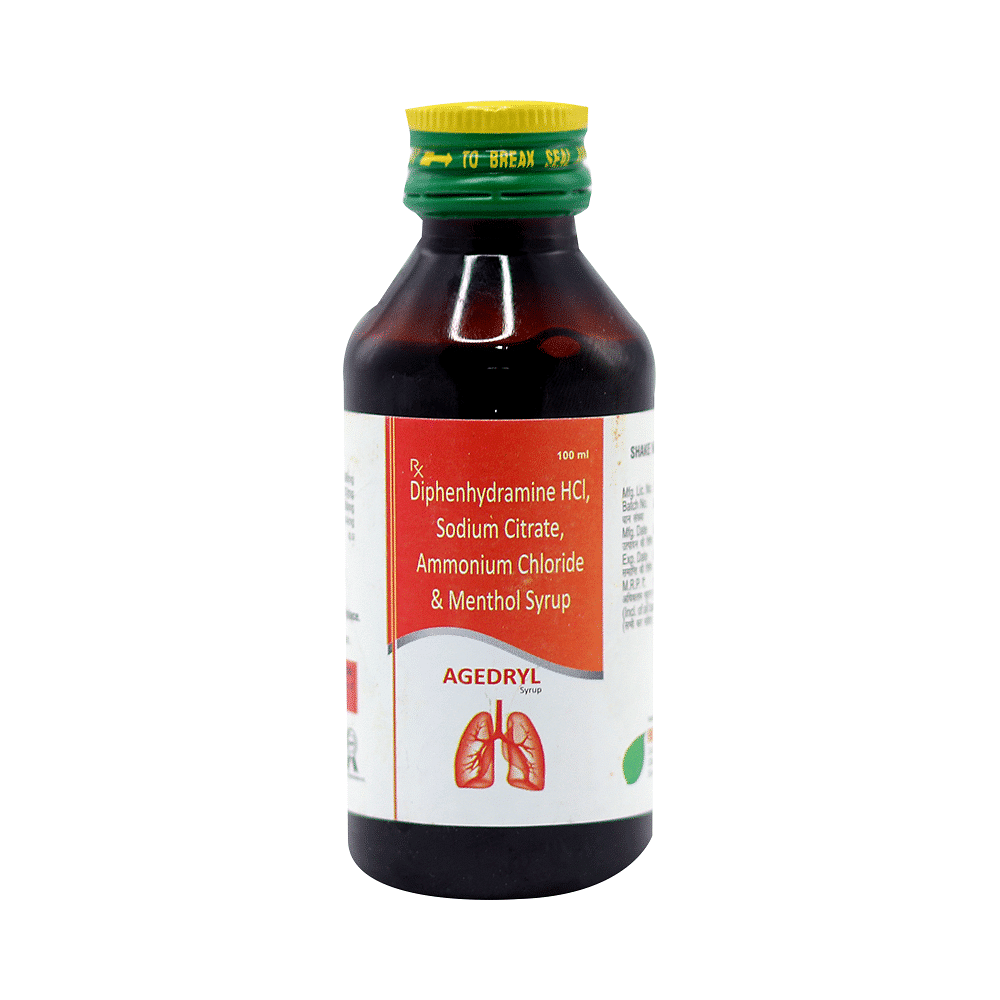
Cheerdryl Cough Syrup
Salt Composition
Ammonium Chloride (138mg/5ml) + Sodium Citrate (57.03mg/5ml) + Diphenhydramine (14.08mg/5ml) + Menthol (1.14mg/5ml)
Key Information
Short Description
Cheerdryl Cough Syrup is a combination medicine used to treat cough, thinning mucus in the nose and windpipe, and relieving allergic symptoms.
Dosage Form
Syrup
Introduction
Cheerdryl Cough Syrup is taken with or without food in a dose and duration as advised by the doctor. The dose you are given will depend on your condition and how you respond to the medicine. You should keep taking this medicine for as long as your doctor recommends. If you stop treatment too early your symptoms may come back and your condition may worsen. Let your doctor know about all other medications you are taking as some may affect or be affected by this medicine.
Directions for Use
Take this medicine in the dose and duration as advised by your doctor. Check the label for directions before use. Measure it with a measuring cup and take it by mouth. Shake well before use. Cheerdryl Cough Syrup may be taken with or without food but it is better to take it at a fixed time.
Safety Information
Side Effects
Stomach pain Allergic reaction Thickened respiratory tract secretions Coordination impaired
Alcohol Warning
Avoid drinking alcohol while taking this medicine as it can make sleepiness worse.
Breastfeeding Warning
Before taking this medicine, you should tell your doctor if you are breastfeeding.
Pregnancy Warning
Before taking this medicine, you should tell your doctor if you are pregnant, planning pregnancy or breastfeeding.
How it works
Cheerdryl Cough Syrup is a combination of four medicines: Ammonium Chloride, Sodium Citrate, Diphenhydramine, and Menthol which relieve cough.
Quick Tips
Cheerdryl Cough Syrup is prescribed to get relief from cough. Drink warm water to help loosen the congestion and lubricate your throat while you are taking this medication. Take exactly as directed by your doctor or on the label. Do not increase the dosage or take for longer than is recommended. Use a proper measuring cup or spoon to measure the dosage. In general, most coughs do not last more than 2 weeks. If your cough does last longer than this then it's better to see your doctor. Inform your doctor if you have or have ever had a breathing problem such as asthma, emphysema, or chronic bronchitis.
Related Medicines

Odex-SF Syrup

Safedryl Syrup

G D Cuf Syrup

Windex-BR Syrup

Finedryl Syrup

Glenmedryl Syrup

Diphen EX Syrup

Biodryl Syrup

Multidryl Syrup

Agedryl Syrup


